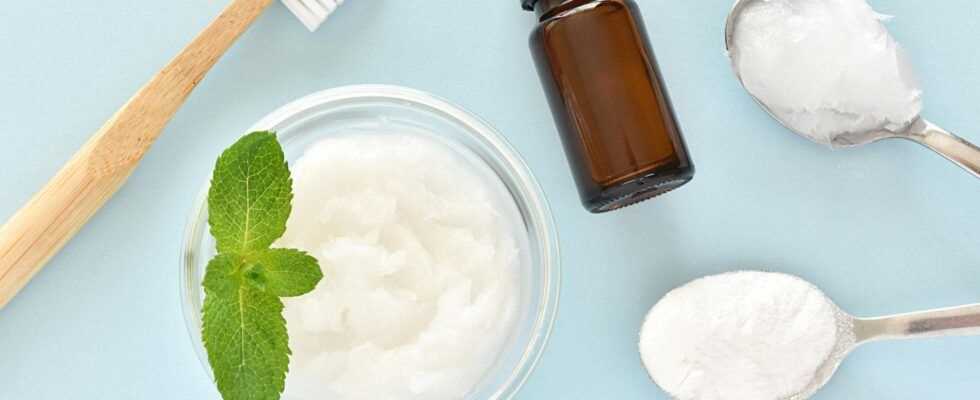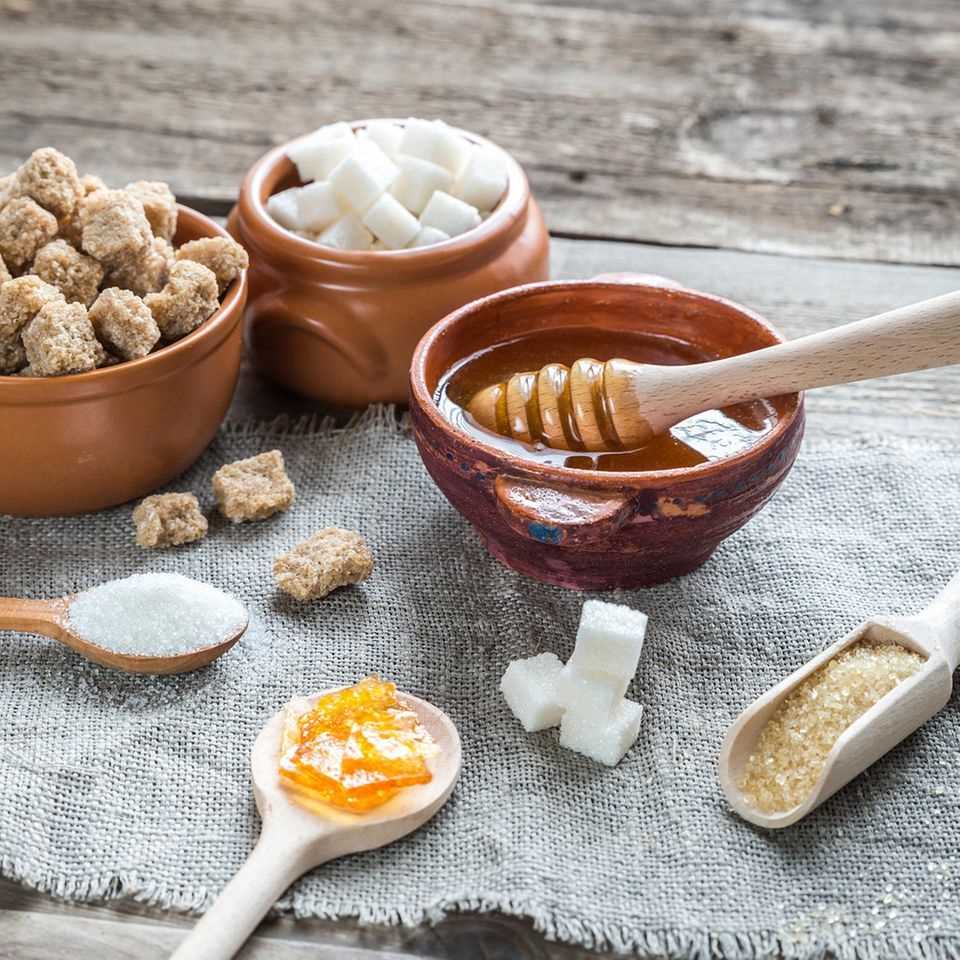Make toothpaste yourself
Natural Toothpaste Recipes
© Shutterstock
Making toothpaste yourself is super uncomplicated. Your DIY toothpaste can be made quickly with just a few ingredients. Our favorite recipes and background information on the ingredients.
There are many reasons to make toothpaste yourself. Avoiding the many preservatives in industrial toothpaste and reducing your own plastic consumption are just a few. Because what many do not know: Many of the conventional toothpastes not only taste exaggeratedly intense, but also have their side effects. This can be seen at the latest when the ingredients irritate the gums, damage the tooth enamel or impair the oral flora.
Make your own toothpaste, that could be the answer. With certain ingredients and a simple recipe, you can quickly and easily create your natural, healthy and delicious toothpaste – and all according to your taste. In addition, you know exactly which ingredients are in the toothpaste.
Have fun trying out one or the other recipe!
1. Coconut toothpaste
Ingredients:
- 4-5 tbsp organic coconut oil
- 2-3 tbsp baking soda
- 10-15 drops of peppermint essential oil
- 2-4 teaspoons of xylitol (birch sugar) depending on your taste
Preparation:
- Warm the coconut oil. Then mix all the ingredients together and stir again and again as the ingredients harden.
- Store the toothpaste in a disinfected container at room temperature.
- You can then use a small spoon to apply the coconut toothpaste to your toothbrush.
2. Sage tooth powder
Ingredients:
- 3 dried sage leaves
- 50 g of salt
Preparation:
- Crumble the sage leaves and place them in an electric coffee grinder along with the salt to pulverize the ingredients.
- Then dissolve a small pinch in your mouth and brush your teeth as you normally would.
- Store the toothpaste at room temperature.
There are dried sage leaves here.
3. Coconut oil-based toothpaste with healing clay
Ingredients:
- 3 tbsp coconut oil
- 1 tbsp healing earth
- 1/2 teaspoon baking soda
- 2 to 3 drops of tea tree oil
- 1 pinch of cinnamon
Preparation:
- Warm the coconut oil so that the healing clay dissolves well in it.
- Mix all the ingredients together.
- Put the toothpaste in a sealable container and always apply it to the toothbrush with a small spoon.
- Store the toothpaste at room temperature in the bathroom.
You can order healing earth here.
4. Water-based toothpaste
Ingredients:
- 4 tbsp baking soda
- 1/2 teaspoon sea salt, alternatively iodine-free salt
- 5-7 drops of peppermint oil or Japanese mint oil
- boiled water
Preparation:
- Mix the baking soda, salt and the essential oil and gradually add a little water until it has a toothpaste consistency.
- Fill the toothpaste into a sealable jar and apply it to the toothbrush with a small spoon.
- Store the toothpaste at room temperature.
You can find suitable baking soda here.
Make toothpaste yourself: the effect of the individual ingredients
Coconut oil
Virgin and cold-pressed coconut oil cleans, protects and has an antibacterial effect. Due to its special fatty acids, the oil is ideally suited as a basic ingredient for a DIY toothpaste. Caries bacteria and Candida fungi are combated with the help of caprylic acid and lauric acid. Coconut oil but also has a healing effect on the gums.
Essential oil such as peppermint oil
Essential oils ensure fresh, pleasant breath, fight harmful bacteria and help clean teeth. Be sure to pay attention to the specified amount and do not take any more, because excessive amounts of essential oils can irritate the oral mucosa. If you have sensitive teeth, you should therefore take a little less peppermint oil. Alternatives are for example lemon oil or Fennel oil.
Baking soda
Soda, used sparingly, cleans the teeth and fights tooth decay. It loosens plaque and reduces tooth discoloration and bad breath. Baking soda neutralizes acid in the mouth and thus ensures the correct pH value so that, in the best case scenario, tooth decay does not even occur.
Healing earth
Healing earth on the one hand ensures whiter teeth, on the other hand it has a mineralizing effect on the tooth substance. The minerals of the healing earth lay like a layer on the teeth and strengthen them. The use of fine healing earth is particularly suitable for sensitive teeth.
Xylitol
Most toothpastes contain sweeteners like aspartame, which are far from healthy. Stevia and xylitol are better alternatives that are particularly popular in making DIY toothpaste. Xylitol, also known as birch sugar, is the perfect sugar substitute. It has an antibacterial effect and protects your teeth from tooth decay, plaque and tartar. In addition, the sugar substitute reduces bad breath.
Danger: If there are dogs in your household, you should make sure that you keep the xylitol inaccessible, because xylitol can be fatal for dogs.
Stevia
Stevia is 300 times sweeter than industrial sugar, but it has significantly fewer calories. The sugar substitute also has an antibacterial effect and is therefore less dangerous with regard to tooth decay, inflammation, plaque and bleeding gums.
Turmeric powder
Turmeric cleanses and helps your teeth get whiter. The plant – often best obtained in the form of a root that resembles ginger – improves your oral environment and can relieve swelling.
sea-salt
The salt prevents tooth decay by neutralizing harmful acids and inhibits the formation of new tartar. The salt also stimulates the flow of saliva.
cinnamon
Cinnamon is antibacterial and anti-inflammatory.


